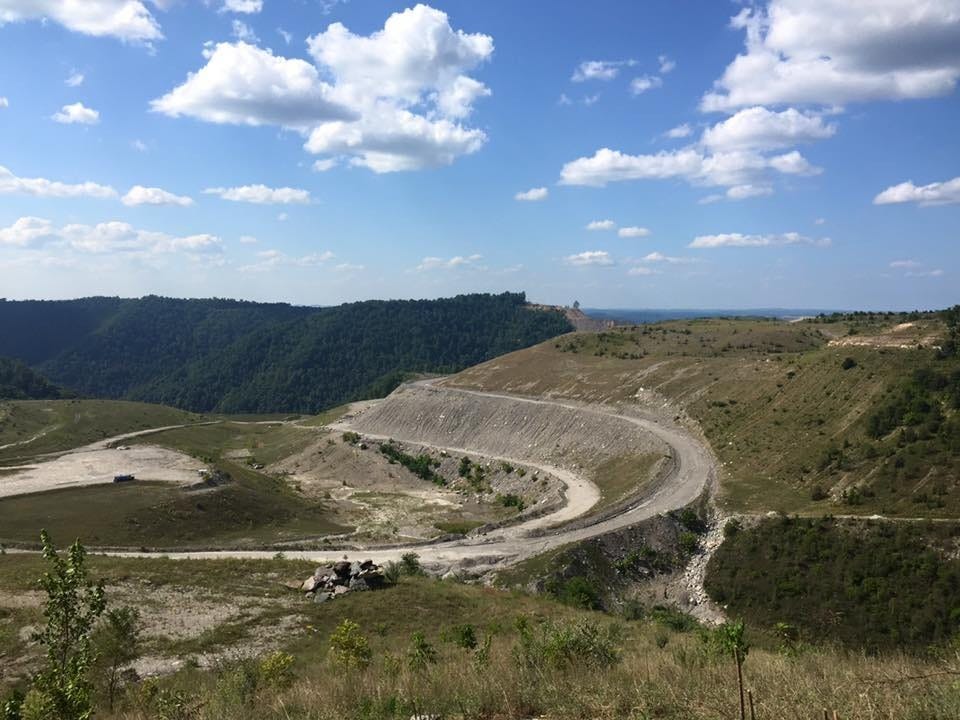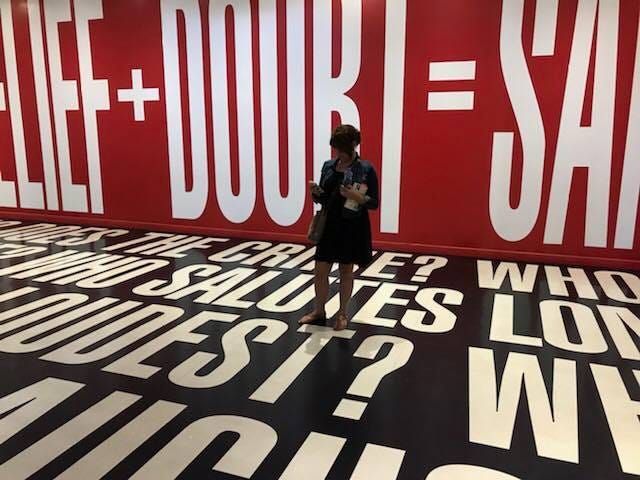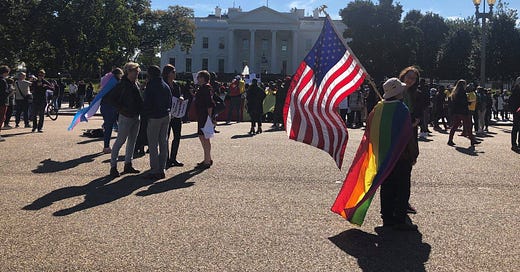I’ve been thinking a lot about self-loathing and what it costs us, personally and collectively. I carried around feelings of unworthiness for years, before finally getting help to rid myself of it. (A simpler way to say it: I hated myself. Isn’t that a terrible sentence?) In addition to being excruciatingly painful, it was dangerous and could’ve killed me. Also–and I only see this in hindsight–it was a complete waste of time, and used up so much of my precious energy. Even now, though, after having exorcised the inner monologue of vicious personal attacks, I contend with whispers of other, more insidious, types of ill will: namely internalized misogyny and ageism. Reflecting upon this lifelong struggle has made me wonder whether we are grappling with self-loathing, writ large. Is the reason our society is so hateful, that we all hate ourselves?
As a middle-aged white woman, I write this from a place of relative privilege. I recognize that I have had the freedom to contemplate self-loathing as an internal struggle rather than a systemic burden imposed upon me, although to be sure there are systemic forces that affect women that can add to the struggle. For many—particularly people of color—self-perception is shaped not just by personal experience but by a society that has, for centuries, devalued and marginalized them.
And, this is not to say that self-loathing is a simple matter of individual mindset, nor am I arguing that marginalized communities should simply 'think differently' about their oppression. Rather, I am examining how broader cultural narratives—steeped in shame, resentment, and internalized inferiority—have been exploited to shape our political moment.

I’m no social or political scientist, nor do I have a background in psychology (except as a patient). I don’t aspire to be any kind of pundit. I’m just a person with a little internet space trying to work some shit out, and I’ve really been wrestling with the “how” and “why” of everything lately. How are we here again? Witnessing the dehumanization of people, watching civil liberties be stripped away? Why do we reject progress and cooperation in favor of regression and individualism? What is individualism anyway, if not a romanticized form of isolation?
If we are, as so many people seem to be screaming, a “Christian nation,” is not one of our main jobs to “love thy neighbor” as we do ourselves? Or, is that wherein the problem lies? That we have very little clue as to how to love ourselves? I wonder how much of the anger, resentment, and division we see today is rooted in people feeling, at their core, unworthy?
In my experience, to love oneself requires honesty, openness, and willingness. The ability to calmly take stock of one’s own values, gifts, and flaws; to borrow from the language of Internal Family Systems, we know we can begin to heal when we can be compassionate, curious, clear, calm, confident, courageous, creative, and connected in our introspection.
I’ve come to believe that this kind of going inward includes a reckoning with the past—our personal pasts, our collective past—that is necessary if we want to feel whole, if we want to feel worthy. Without that reckoning, we carry the weight of unacknowledged wounds, whether we recognize them or not. I’ve felt this in my own life: the way shame lingers when pain is left unspoken, the way self-loathing thrives in the absence of truth. And I can’t help but see a parallel in the world around me.

Even when I’ve spoken the truth about past trauma, I’ve felt the shame of sharing it out loud. This happened when I told a story of childhood sexual abuse during the Kavanaugh confirmation hearings. I was an elected official who participated in an action that included writing and speaking about painful things from my past. When the local paper ran an article outlining what I’d written, the feeling of shame that overcame me was immediate, and my inclination was to shut down. I had a choice then: care for myself, know that the shameful behavior was not mine to shoulder, and continue to reckon with it in the best way I could, no matter how flawed. Or, I could revert back to denial, dissociation, or escapism which would lead me inevitably back to shame, anger, and unworthiness.
America, too, has wounds it refuses to name, or struggles to heal. When we have begun to reckon with them—through movements for racial justice, for truth about our history, for accountability—there has been inevitable and terrible pushback. It’s as if acknowledging the harm done, both to ourselves and to others, is more frightening than the harm itself. Denial masquerades as strength, and so we resist the very thing that could make us whole.
In my personal work to heal, I’ve had to be honest about the past, recognize that self-loathing and unworthiness are not who I am, but rather feelings that somehow protected me when I needed protection. I’ve had to sit in the discomfort of figuring out how to learn from those parts without letting them drown out my true self.
Collectively, I don’t know how we heal. Again, I’m no expert, but perhaps it begins in the way that individual healing begins: with honesty. We can’t fix what we refuse to name. Individually, this means confronting the ways we’ve internalized shame—whether from childhood, culture, or a society that constantly tells us we’re not enough. Collectively, it means acknowledging the deep-rooted histories that have shaped our national psyche: the wounds of colonization, slavery, white supremacy, patriarchy, homophobia, economic exploitation, and the ways power has thrived on our insecurity.
Too often, the American response to shame is projection—blaming others, lashing out, clinging to nostalgia instead of confronting reality. We see it in our politics, in the anger of those who feel left behind, in the resentment of those who were promised more than they received. Instead of looking inward, we turn against one another.
Healing requires us to sit with the discomfort of truth instead of running from it.
I think this work is exceptionally difficult, no matter the circumstances, but particularly under capitalism and the idea of American exceptionalism. Both personally and as a society, we have been taught that worth must be earned: through achievement, wealth, status, perfection. But healing requires rejecting that lie. Worthiness is inherent, not conditional. No one—on an individual or collective level—has to be perfect to deserve dignity.
For America, this means abandoning the myth that we are "exceptional" and therefore beyond accountability. True strength comes not from perfection, but from the ability to grow, to take responsibility, to evolve. We must learn to extend the same grace to ourselves and to each other that we so often withhold.
I also think that healing means making amends. After all, healing does not happen in isolation. It requires community, reflection, and, most importantly, the opportunity to change, and to attempt to right what is wrong. This means giving people the chance to learn, to be accountable, to unlearn what they were taught about themselves and others. It means confronting our history—not in a way that paralyzes us with guilt, but in a way that allows us to move forward with integrity. I think of 12 Step programs and their focus on making amends, not only in the 9th step, but then as a regular practice that includes personal inventory– a personal reckoning.
Every real attempt at national reckoning—Reconstruction, the Civil Rights Movement, the Black Lives Matter and Me Too movements, even the smallest conversations about race, class, and inequality—has been met with pushback. But resistance doesn’t mean reckoning is wrong; it means it’s working. The more a truth is feared, the more necessary it is.
Lastly, if self-loathing drives cruelty, then healing–even in the macro–must be rooted in compassion. This does not mean excusing harm, but it does mean recognizing that much of the division we see is fueled by pain. The goal is not to let go of accountability, but to understand that a society filled with people who hate themselves will continue to tear itself apart.
I know that, try as I might, I could not bludgeon myself out of self-hatred. I had to learn to treat myself with kindness, compassion, and caring… all the “c” words I used above. This was remarkably difficult–again, the anger, shame, guilt, fear were in their own ways, there to protect me, so letting them go was tough.
If we want something different—if we want to break the cycle—we have to be willing to model a different way of being. Not just in policy, not just in politics, but in the way we speak to one another, the way we teach our children, the way we engage with those who are still trapped in shame and fear.
Healing is not passive; it is an active, daily choice—to tell the truth, to reject the lies we’ve been told about ourselves and each other, to repair what we can and refuse to be consumed by resentment where we cannot.
Again, I know how this can sound. A middle-aged white woman talking about healing and self-worth, urging us to move through shame and reckon with the past—it risks veering into the kind of empty, feel-good rhetoric that glosses over real harm. I don’t want to do that; this is not about toxic positivity. I don’t believe that self-loathing, for individuals or for a nation, can be overcome simply by 'thinking positively.' Healing is not the same as ignoring pain. It’s not about pretending everything is fine or letting people off the hook for the harm they’ve caused. It’s about telling the truth—even when it’s uncomfortable, even when it costs us something.
I believe this because I’ve lived it. Because I’ve felt the way self-loathing distorts reality, how it can make people cruel—to themselves and to others. And when I look at the world around me, I see that same dynamic playing out on a national scale. I don’t think we can move forward unless we deal with it, unless we stop letting our wounds fester into resentment and rage. This isn’t about pretending everything is okay. It’s about choosing, again and again, to engage with the truth rather than running from it. I believe this is the only way healing—real healing—can happen.
Thank you for reading! Please subscribe and share, if you feel so inclined.




Wonderful to have your thoughtful, insightful voice out in the world again, Miz Honey May. I recommend this substack to all. Write on, please. _/\_
I've been reading a book about this very thing, the “pride paradox” in politics. Particularly in rural areas. Stolen Pride by Arlie Hochschild. I can't hardly get through a chapter without having to stop and meditate on the feelings it has surfaced in me.